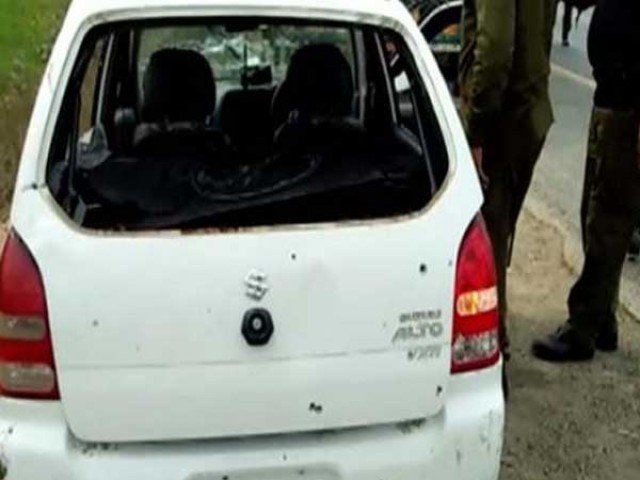ISLAMABAD: The Punjab government on Wednesday admitted before a Senate committee that the encounter method which resulted in the killing of four people in Sahiwal earlier this month was wrong.
Punjab Additional Home Secretary Fazeel Asghar, in his briefing to the Senate’s Standing Committee on Human Rights on the tragic incident, admitted that the method employed by the Counter-Terrorism Department personnel was wrong, and that they should have first checked to see who was in the car despite their reservations about the alleged presence of a terrorist inside.
On January 19, four people — including three members of a family — were killed in an alleged encounter in Sahiwal. CTD personnel said they had killed a local commander of militant organisation Daesh and three others in the operation. Eyewitnesses, however, disputed the claim and said the people in the car did not fire at officials, nor were any explosives recovered from the vehicle.
The dead included the driver of the car Zeeshan, who the authorities claimed was the suspect; Khalil, his wife and their teenage daughter.
The additional home secretary told the committee that security forces were alerted to the threat of a major terror bid ahead of the incident, after the vehicle was caught on a camera and reported to the authorities. The encounter was carried out on the basis of the alert, he said.
Fazeel Asghar said whether or not the vehicle occupants fired at the CTD personnel would be made clear by the findings of the joint investigation team probing the incident. However, it was obvious thus far that Khalil and his family were innocent, he added.
The additional secretary further told the Senate committee that on January 13, for the first time, Zeeshan was spotted in a photo with two other terror suspects, Adeel and Usman, along with a car. The car travelled from Sahiwal to Faisalabad, where the other two suspects were killed in an intelligence-based operation while Zeeshan fled.
A mobile SIM was recovered which pinpointed location near Zeeshan’s residence. Zeeshan’s selfie was found in Adeel’s phone as well, after which the authorities started the hunt to track him down. The car in question was not spotted by the authorities until January 19, when it was caught in a footage in Manga Mandi. It was then tracked by the security forces, the committee was told.
Asghar informed that the authorities also intercepted a call from Daesh in Afghanistan in which it was mentioned that Adeel and Usman had been killed, and a major terrorist activity would be carried out in revenge. On January 17, big boxes of explosives were seized from Misri Shah.
Senator Mustafa Nawaz Khokhar, who chaired the Senate committee on human rights, pointed out that one of the children, in his statement following the tragedy, said that his father had begged to offer money so they could be spared. To this, Asghar replied that the child’s grief could have influenced his statement.
In response, Senator Barrister Saif warned not to take the child’s statement lightly. He said that the police should not even be allowed to constitute the JIT as it must have erased all evidences.
“Where are the jackets and explosives that the [CTD] claimed to have found [from the car]? If these [objects] have not been presented still then it means the evidence has been altered,” the barrister said.
“If your purpose was only to kill, then it means you have become a killing squad,” he raged on, questioning how many more innocents may have been killed in so-called encounters.





